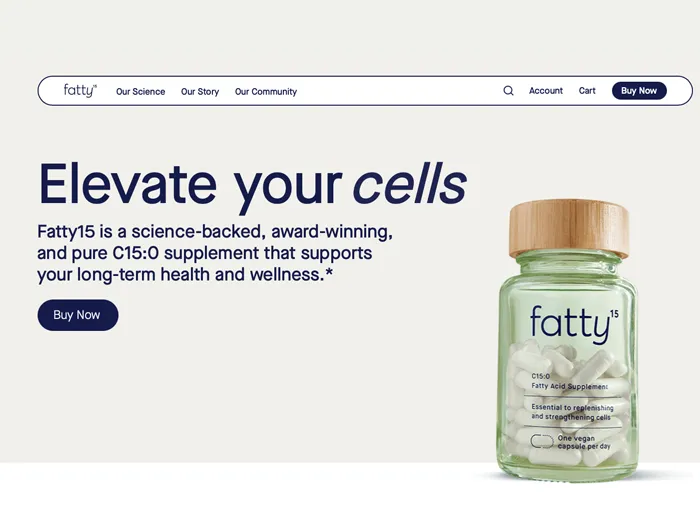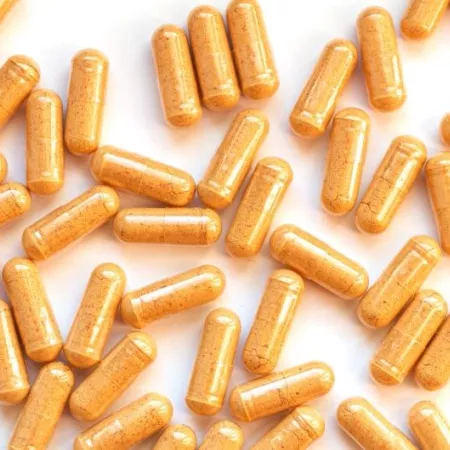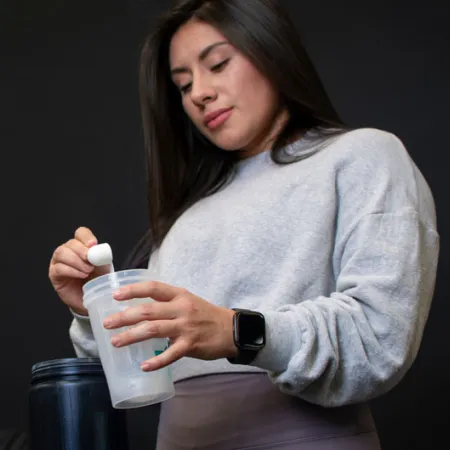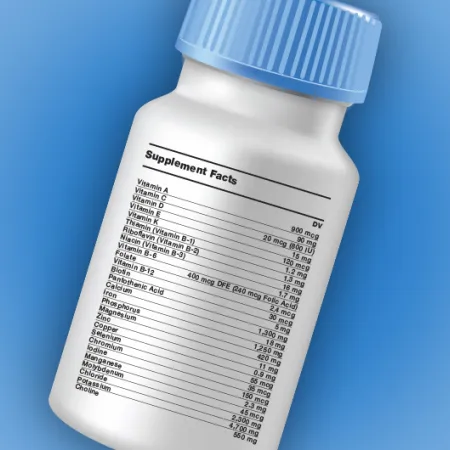The supplement Fatty15 claims that a 15-carbon-chain fatty acid is essential for health and “slows and reverses aging at the cellular level.” But a look at the evidence supporting that fatty acid might help keep your credit card in your wallet.
What is Fatty15?
Fatty15 is a supplement that contains pentadecanoic acid, a fatty acid with 15 carbon atoms that’s found primarily in dairy fat. The supplement, which is also called C15:0, is “your healthy aging supplement” with “activities that support your metabolic, liver, red blood cell and cognitive health,” according to Fatty15’s website.
Is it?
“If cell membranes are low in C15:0, they can become fragile, leading to the Cellular Fragility Syndrome,” says Fatty15’s website. “An estimated 1 in 3 people have a nutritional C15:0 deficiency, which can accelerate aging and negatively affect our long-term metabolic, heart, and liver health.”
Never heard of Cellular Fragility Syndrome? That puts you in good company: pretty much everyone else on Earth. That’s because the term was coined just last year in a paper published by a co-founder of Seraphina Therapeutics, Fatty15’s manufacturer. Other than in another paper written by the same co-founder, you’d be hard-pressed to find much discussion about Cellular Fragility Syndrome in peer-reviewed studies.
Is C15:0 essential for health?
Don’t put too much stock in Fatty15’s claim that 1 in 3 people are deficient in C15:0. In order to be “deficient,” a nutrient has to first be considered “essential” (that means your body doesn’t make it, so you need to consume it to be healthy).
Other than research by Fatty15’s co-founder, we could find only one group of investigators that is even considering whether C15:0 is essential. And they describe it as a “potential candidate for a newly described essential fatty acid.” What’s more, the National Academies of Science, Engineering, and Medicine (the group that decides what nutrients we need) doesn’t consider C15:0 to be essential. Bottom line: Fatty15’s claim that C15:0 is the “first essential fatty acid to be discovered in over 90 years” isn’t anywhere near a slam dunk.
Reminder: Just because a company states something as a fact doesn’t mean that it’s true.
Of course, that doesn’t stop Fatty15 from selling a blood test (for $199) to tell you if you’re “deficient” in C15:0. And, if you are, they’re happy to sell you a 30-day supply of Fatty15 for only $50 or so.
What a brilliant business plan: Create a problem, market a test for the problem, then sell a solution to the problem to keep the money rolling in month after month.
Can C15:0 improve your health?
Though the research on C15:0 is in its very early stages, some studies suggest that it might be beneficial. For example, in a few studies in test tubes and in mice, C15:0 lowered inflammation and helped regulate sugar metabolism.
Other studies link higher blood levels of C15:0 to a lower risk of type 2 diabetes and coronary heart disease. Of course, those studies don’t prove that taking a C15:0 supplement does anything: Something else about people with high levels of C15:0 may explain their lower risk.
And despite Fatty15’s claim that “C15:0 is so important to our longevity,” no randomized trial has ever tested C15:0’s ability to change markers of longevity in people.
What about other benefits? Only two randomized trials have been published, and neither has researchers buzzing with excitement.
In one (which was partially funded by a company that makes oils for foods), researchers randomly assigned 88 women with non-alcoholic fatty liver disease (NAFLD) to one of three groups: a control group, a group that ate a reduced-calorie Mediterranean diet, or a group that ate the same diet plus a daily supplement with 300 milligrams of C15:0.
After 12 weeks, both diet groups had lost more weight and liver fat than the control group. But the C15:0 group fared no better than the Mediterranean-diet-only group, except for one possible glimmer of benefit: LDL (“bad”) cholesterol dropped more in the C15:0 group, though the differences were modest.
In the second trial, a pilot study partly funded by Fatty15’s manufacturer, 30 young adults with excess weight took 200 mg of Fatty15 or a placebo every day. After 12 weeks, the Fatty15-takers had higher blood levels of C15:0 than the placebo-takers, as you’d expect. But there were no differences between groups in body weight, waist circumference, total cholesterol, LDL (“bad”) cholesterol, blood sugar, or a marker of inflammation.
Worth noting: According to the Fatty15 supplement label, a dose is 100 mg of C15:0. No studies have looked at that dose.
Bottom line
Most of the claims about Fatty15’s potential health benefits come from studies conducted by the company’s co-founder. Fatty15 makes a fuss about its anti-aging potential, but no randomized trials have ever looked at markers of longevity. Our take: Save your money.








